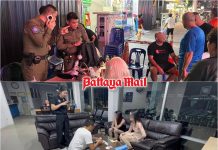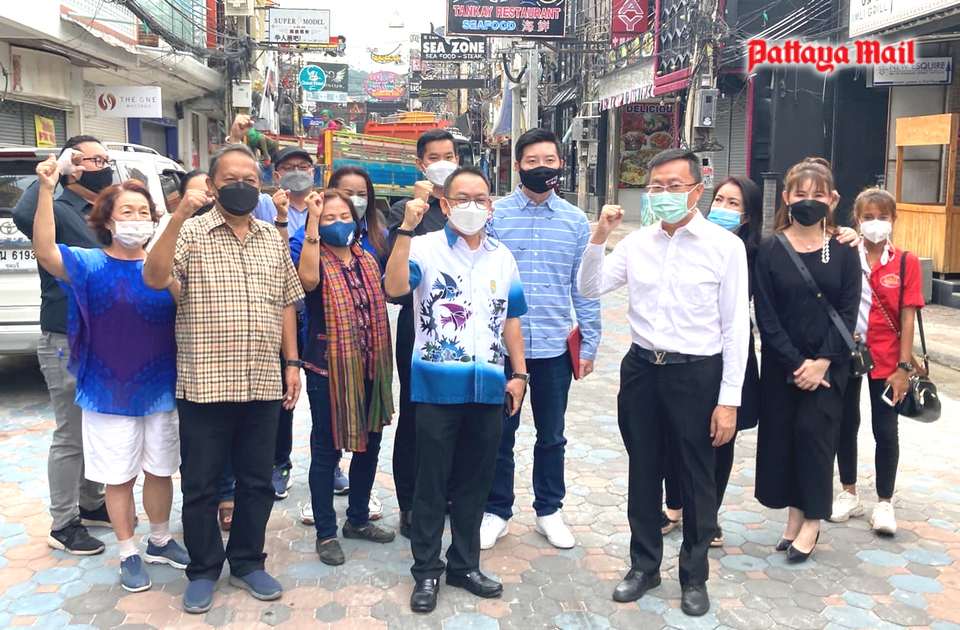
Hundreds of Pattaya hospitality and entertainment owners and employees marched on Walking Street Friday to demand that alcohol sales be allowed in restaurants. It was the finale of a months-long campaign to restore the profit center of many pubs but one that, it turns out, wasn’t needed.
Chonburi’s governor a few hours later released an order permitting booze sales. It came shortly after a similar order was published in Hua Hin and hours before the same thing happened in Chiang Mai.
Prime Minister Prayut Chan-o-cha had said on television in October that alcohol in restaurants would not be even considered until December. From that perspective, business leaders had only waited three days.
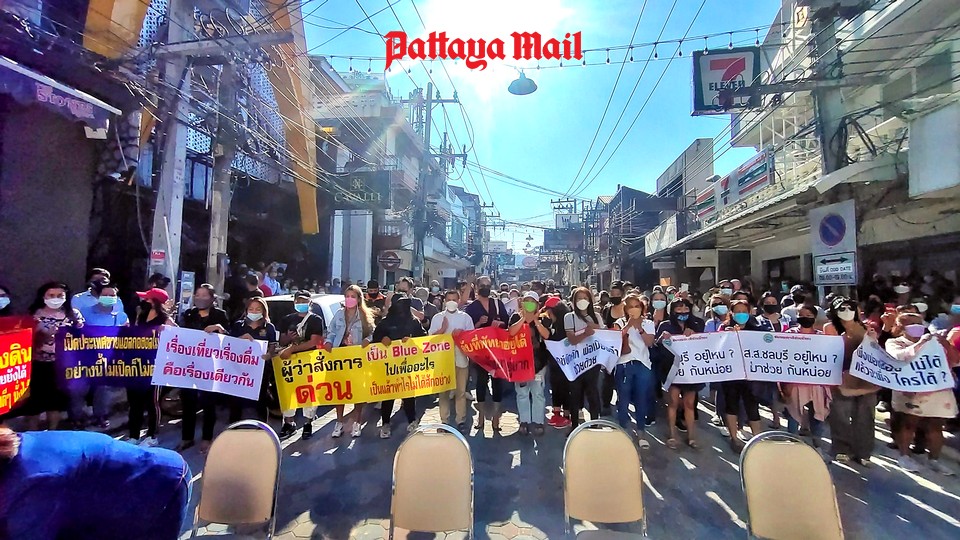
But the Center for Covid-19 Situation Administration undermined the prime minister’s message by allowing booze sales to return in Bangkok and three other “tourism pilot zones” Nov. 1. The idea of a uniform December end to prohibition was eroded further as provinces around Bangkok, Cha-am and other municipalities got the OK to turn the beer taps back on.
Thanet Supornsahatrangsi, chairman of the Chonburi Tourism Industry Council, felt Chonburi – specifically Banglamung and Sattahip districts – had been unfairly treated as, just like Bangkok, those two districts were designated “blue” tourism-pilot zones. Such zones were allowed to sell alcohol, which Bangkok, Phuket, Krabi and Phangnga had been doing since Nov. 1.
Pattaya reopened to foreign tourism at the same time as Bangkok, but was put at a disadvantage by its restaurants being “dry”, Thanet said.
Business leaders claimed the decision to allow alcohol sales always laid with Chonburi Gov Pakarathorn Thienchai. After all, it was Bangkok and Phetchaburi’s governors that approved alcohol sales in those regions. But Phakhathorn always passed off blame on the Center for Covid-19 Situation Administration. In the end, it was Pakarathorn, not the CCSA that issued the order.
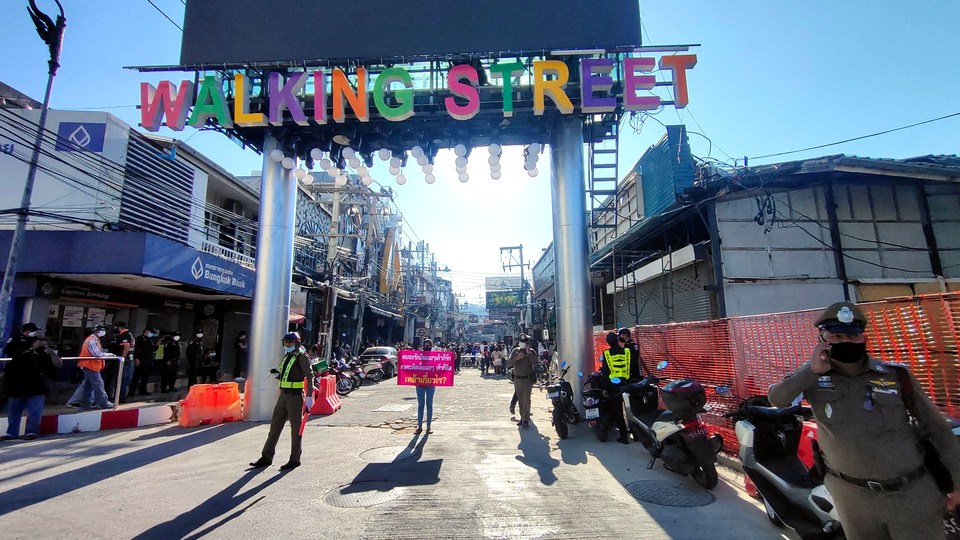
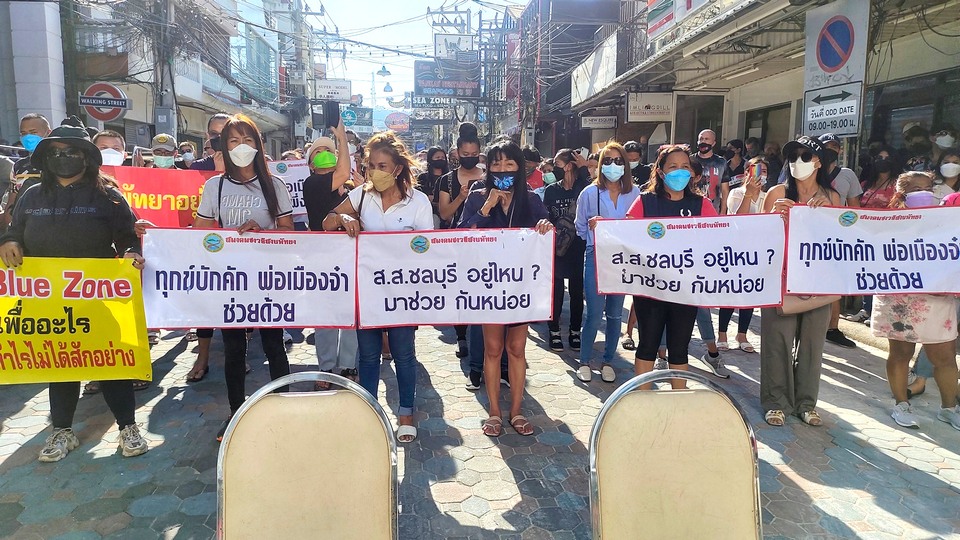
 |
 |
 |




